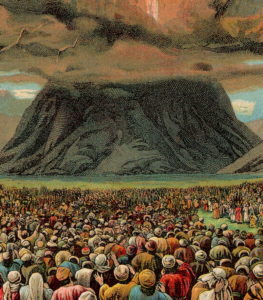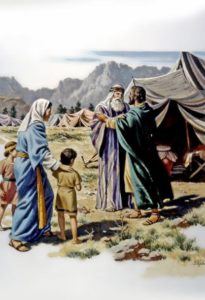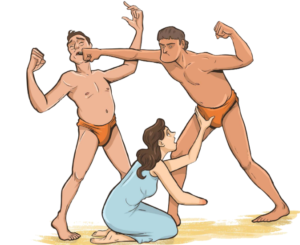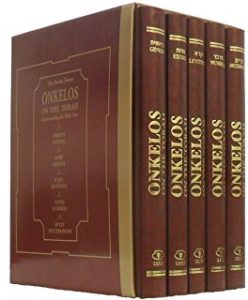 A number of momentous occasions among friends; let’s begin. Ober, not before a first time shout out to Rabbi and Rebbetzin Moshe & Sori Teitelbaum upon the birth of a grandson born to their children Rivky and Dovid Teitelbaum. May baby Teitelbaum bring his parents, grandparents, and both extended families much nachas for at least 120 years. The sholom zochor will take place Friday night at the Teitelbaum residence. All are invited (on the way to, or back, from the Fenster sholom zochor: details below).
A number of momentous occasions among friends; let’s begin. Ober, not before a first time shout out to Rabbi and Rebbetzin Moshe & Sori Teitelbaum upon the birth of a grandson born to their children Rivky and Dovid Teitelbaum. May baby Teitelbaum bring his parents, grandparents, and both extended families much nachas for at least 120 years. The sholom zochor will take place Friday night at the Teitelbaum residence. All are invited (on the way to, or back, from the Fenster sholom zochor: details below).
Mazel tov to our good friends of many decades Chana and Jay Fenster, happy and excited grandparents for a third time -keyn yirbu- upon the arrival of a baby boy born to their children Reva and Yechiel Fuchs this past Sunday. The sholom zochor will take place at the Fuchs residence on Friday evening with the bris to follow on Sunday morning. All are invited. A big mazel tov as well to Yechiel’s parents, Joan and Alan Fuchs, to the entire extended Fuchs family (among them a few dedicated Oisvorf followers). Mazel tov to the great grandparents Mr. and Mrs. Phil Fenster, and to Chana’s mom, Mrs. Marsha Wohl.
Heartfelt mazel tov wishes to our yididim (very close friends) Judith & Shlomo Gottesman upon the upcoming shabbis kallah and wedding (this coming Sunday) of their beautiful daughter Talia, to Gabi Stone, he the young lucky man and the son of Ellen & Stanley Stone of Teaneck, New Jersey. Mazel tov to Talia’s grandparents, Rabbi and Mrs. Moshe & Sondra Gottesman, and to Mrs. Blanche Lerer, Judith’s mom. May Talia and Gabi have only mazel in their married life.
And a big and special mazel to Merav Silverstein, she the accomplished (soon to be) lawyer and beautiful daughter of our good friends Estie and Yussy Silverstein, who was married this past Monday evening to Aharon Watson, he the son of Ora and Mark Watson. Mazel tov to Estie’s parents, very proud grandparents, Joyce and Harvey Colton, and to Yussy’s parents, Arlene and Bernie Silverstein (who still owe the Oisvorfer a weekend at their home in VACATION VILLAGE).
Raboyseyee and Ladies:
What happened to Unkilis?
Who the hec is Unkilis and what did Art Scroll do to him? We shall soon find out!
Every so often the Oisvorfer harkens back and recalls his many rebbes telling the class that the heylige Toirah contains not one extra word. Not even a letter. Nothing is repeated. Shoin, after knocking that thought into our collective heads, mostly with the aid of a shtekin (stick), this rule of Toirah was accepted as gospel. Decades later, this thought just rolls off our tongues; we dare not question its veracity. Ober yearly as we review the heylige Toirah, parsha by parsha, we come across certain precepts -limoshol, the observance of shabbis, to stay away from avoido zoro (idolatry)- which prima facie at least, seem to contradict what the rebbe taught us. Each is mentioned multiple times. Was he correct?
 This week, we will explore the mitzvah of the Geyr. What the hec is a Geyr? Nu, depending on which English version of a Chumish you are looking at, the Geyr is either a foreigner, a stranger, or a proselyte (a convert to Judaism). In some cases, the Geyr might be all three. In parshas Mishpotim, the RBSO will give us direct orders on the treatment of the Geyr. More than once. In fact, we will be reading His instructions on the treatment of the Geyr multiple times as we move forward. Ober, let’s begin with a shtikel chazro of what went down just last week.
This week, we will explore the mitzvah of the Geyr. What the hec is a Geyr? Nu, depending on which English version of a Chumish you are looking at, the Geyr is either a foreigner, a stranger, or a proselyte (a convert to Judaism). In some cases, the Geyr might be all three. In parshas Mishpotim, the RBSO will give us direct orders on the treatment of the Geyr. More than once. In fact, we will be reading His instructions on the treatment of the Geyr multiple times as we move forward. Ober, let’s begin with a shtikel chazro of what went down just last week.
Last week: The RBSO, after 2448 years in the planning stages, married the Yiddin. Both parties were ready and willing. Were they? Efsher you recall the famous medrish as quoted by Rashi, which told us that the RBSO lifted the entire mountain over the heads of the Yiddin and politely asked the Yiddin for their collective hands in marriage. Of course you all remember learning that the other umois-ho’oilom (the goyim) all rejected the heylige Toirah for various reasons; only the Yiddin were to utter the now famous words of Na’aseh V’nishma (we shall do and then we shall listen) and enter into the union whereby we became His Chosen People. Shoin, here we are over 3,300 years later. Of course, like in most marriages, not all the years have been pleasant. Grada history records that many were quite rocky, the Yiddin were mostly out of control; somehow we’re still married. Shoin, another lesson learned: for the most part, most thought avada not call marriages can make it.
And taka, last week, in Parshas Yisroy, the Yiddin hastily, and before knowing many details, proclaimed with one voice – na’aseh v’nishma- we will do and we will listen. That was perhaps the first and last time the Yiddin proclaimed anything in one voice, even two. Yiddin seem to have many voices; mostly they are not in synch. Shoin. Ever since, there has been lots of doing, especially the wrong things, and precious little listening. Another pshat (from the heylige Oisvorfer): lots of doing and then listening to find out that what was done, was taka all wrong, as we will sadly learn in the upcoming parshas. Ober for good and for bad, we are the Yiddin; seemingly the RBSO has had and continues to have epes a shtikel love/hate relationship with us. Was it efsher related to the fact that we too were at one time Geyrim? We shall soon find out. Still, with that declaration, they received, at long last, the Aseres Hadibrois (Ten Commandments); now what? And is that really what happened? And when did the Yiddin actually declare “Na’aseh V’nishma”? We will maybe cover that shortly ober ershtens….
 One week ago, the Yiddin were witness to fire and brimstone: the earth shook, a mountain was over their heads and the RBSO came down and personally delivered the Aseres Hadibrois (Ten Commandments). Also featured prominently last week was Yisroy who told his-son-in-law Moishe to appoint judges to help the Yiddin adjudicate issues and disputes they were having. What issues were they having, ver veyst? Why was Moishe standing all day and adjudicating issues between the Yiddin? What were they fighting about in the midbar? Let’s get real: Yisroy, according to some, arrived and gave his advice prior to Matan Toirah. And if that’s oisgihalten (logical and true), what the hec were the Yiddin fighting about? There were precious few laws on the books. Civil laws were first to come following Revelation. Ober, efsher we can kler that taka Yisroy was a genius: He chapped that if a few million Yiddin were gathered and hanging out together, there needed to be some Law & Order. And long before President Trump ran for office on this platform, there was Yisroy who foresaw that a judicial system needed to be established and implemented to handle and adjudicate the myriad issues that would arise once laws were established. In any event, Yisroy suggested that Moishe would tire from standing in judgment all day. Moishe listened and according to many, it was for that reason- the sage advice Yisroy gave- that a Parsha was named after him.
One week ago, the Yiddin were witness to fire and brimstone: the earth shook, a mountain was over their heads and the RBSO came down and personally delivered the Aseres Hadibrois (Ten Commandments). Also featured prominently last week was Yisroy who told his-son-in-law Moishe to appoint judges to help the Yiddin adjudicate issues and disputes they were having. What issues were they having, ver veyst? Why was Moishe standing all day and adjudicating issues between the Yiddin? What were they fighting about in the midbar? Let’s get real: Yisroy, according to some, arrived and gave his advice prior to Matan Toirah. And if that’s oisgihalten (logical and true), what the hec were the Yiddin fighting about? There were precious few laws on the books. Civil laws were first to come following Revelation. Ober, efsher we can kler that taka Yisroy was a genius: He chapped that if a few million Yiddin were gathered and hanging out together, there needed to be some Law & Order. And long before President Trump ran for office on this platform, there was Yisroy who foresaw that a judicial system needed to be established and implemented to handle and adjudicate the myriad issues that would arise once laws were established. In any event, Yisroy suggested that Moishe would tire from standing in judgment all day. Moishe listened and according to many, it was for that reason- the sage advice Yisroy gave- that a Parsha was named after him.
 Shoin, like most marriages just after sheva brochos -one week later- reality was about to set in. It does in our parsha when Moishe will teach the Yiddin a whopping number of mitzvois of every variety. Says the Sefer HaChinuch (Book of Mitzvah Education): Mishpotim contains a total of 53 mitzvois, the great majority of them falling under the heading of what we would call, “civil and criminal law.” Moreover, 30 of 53 are of the loi-sah-say (Thou shall not do) variety, the type that most of you struggle with daily, if you chap. You are sadly not alone.
Shoin, like most marriages just after sheva brochos -one week later- reality was about to set in. It does in our parsha when Moishe will teach the Yiddin a whopping number of mitzvois of every variety. Says the Sefer HaChinuch (Book of Mitzvah Education): Mishpotim contains a total of 53 mitzvois, the great majority of them falling under the heading of what we would call, “civil and criminal law.” Moreover, 30 of 53 are of the loi-sah-say (Thou shall not do) variety, the type that most of you struggle with daily, if you chap. You are sadly not alone.
Says the Medrish: Last week’s dramatic revelation by the RBSO to the Yiddin at Har Sinai was so powerful and spiritual that all who were there and, even those who weren’t, literally had an out-of-body experience. Avada it’s easier for those who weren’t born yet, to have such an experience, ver veyst, and maybe we were taka all there. Is that so hard to believe? Get with the program! The Yiddin were still awed by the powerful presentation of Matan Toirah earlier in the morning. Hours earlier, they learned the importance of mitzvois that show love for the RBSO –Bain Adam L’Makom (between man and the RBSO). As evening set in, the RBSO taught Moishe some important new laws to keep order. These, the Mishpotim (laws) are meant to help the Yiddin love one another and get along. Shoin: that plan didn’t work out too well; Yiddin for the most part do not get along; many mamish hate each other. Hence, the need for the myriad laws taught this week, which include what to do when two Yiddin fight, when one kills another, and much more. The RBSO knew His People well, too well. Nothing is perfect.
Mishpotim sets forth the laws which gave birth to and keep, ad hayoim hazeh (until today), entire industries booming. The mitzvois in this week’s parsha gave us the need for lawyers, judges, courts and even Rabbis. They are all busy daily dealing with and interpreting the mitzvois found in this week’s parsha and violated daily. Last week we appointed judges, and this week, Moishe calls for litigants, defendants, lawyers and witnesses. This parsha has it all: fines, penalties, capital punishment and its details, property damages, torts, regulations for debtors and creditors; di gantze (the entire) law school syllabus in one parsha. Is the heylige Toirah great or what? The RBSO, in His magnificence, understood that if He gave us laws, we’d break them and that if He told us the do’s and don’ts, people wouldn’t get it right and would eventually end up in machloikes (disputes). And, as always, He was correct. In fact, Mishpotim, is the inspiration for as many as six Mesechtos (Tractates – you idiots) of the heylige Gemora. Speaking of which, the Oisvorfer has always wondered why the Yeshivas spend so much time teaching the Bubas: Buba Metzia, Buba Basra and Buba Kamma, all deeply rooted in this week’s parsha and which, for the most part, kimat always, put the young energetic hormone engorged bochurim to sleep. Who cares what happens when two people find a shmatta and grab onto it at the same time? Have you ever witnessed two guys fighting over a t-shirt or peris-mifuzrrin (fruits strewn about)? Avada nisht! Have you ever fallen into a hole or pit, if you chap, that you didn’t want to be in? Shoin, don’t answer that! And who cares about an ox goring the neighbor’s ox? High School bochurim (teens) care about one thing: girls! And mistama were the Yeshiva world to teach Seder Noshim (all about women) which includes such stimulating discussions as found in Tractate Yivomis, or Gittin (all about divorces), and others, instead of esoteric subject matters that are long gone and forgotten, these same bochurim would be alert and excited to learn the heylige Gemora and would mistama never miss class or mishmar for that matter. And ver veyst, efsher they wouldn’t need that year or more in Israel as the boys would be shtark (hard), if you chap, learners. Moreover they’d be prepared for the real world. On the other hand: efsher your bihaymo (animal) didn’t gore your neighbor, but did you, chazir minuvil that you are?
 This week Moishe sets down laws covering manslaughter and murder, kidnapping and stealing, injuring or cursing a parent, personal injury or damages, and killing or injuring slaves. We are taught laws concerning animals, damage by grazing or by fire, the laws of custodians, and money lending. Lemoshol (by way of example), we are taught that Yiddin may not charge interest on loans given and avada you know how well that worked out throughout Jewish history. And even today, when was the last time you took an interest free loan from a chaver? When? Never! Avada the heylige Toirah does specifically state the word ‘loan’ -zicher meaning- that it’s due to be repaid. A nechtiger tug! Unfortunately many Yiddin have forgotten that word and when they take loans, they’re nebech almost always sadly not paid back. Many prefer the minhag (custom) over the rule. The custom being not to repay loans. Other laws include those dealing with a man who seduces a woman, chas v’sholom- say it’s not so, occult practices, and idolatry. We are commanded not to oppress widows and orphans and are obligated to lend money to the poor. We must accept the authority of the judges, bring the first of our produce and animals to the RBSO and not pervert the system of justice. We are instructed to return lost objects and help unload an animal that is unable to carry its burden.
This week Moishe sets down laws covering manslaughter and murder, kidnapping and stealing, injuring or cursing a parent, personal injury or damages, and killing or injuring slaves. We are taught laws concerning animals, damage by grazing or by fire, the laws of custodians, and money lending. Lemoshol (by way of example), we are taught that Yiddin may not charge interest on loans given and avada you know how well that worked out throughout Jewish history. And even today, when was the last time you took an interest free loan from a chaver? When? Never! Avada the heylige Toirah does specifically state the word ‘loan’ -zicher meaning- that it’s due to be repaid. A nechtiger tug! Unfortunately many Yiddin have forgotten that word and when they take loans, they’re nebech almost always sadly not paid back. Many prefer the minhag (custom) over the rule. The custom being not to repay loans. Other laws include those dealing with a man who seduces a woman, chas v’sholom- say it’s not so, occult practices, and idolatry. We are commanded not to oppress widows and orphans and are obligated to lend money to the poor. We must accept the authority of the judges, bring the first of our produce and animals to the RBSO and not pervert the system of justice. We are instructed to return lost objects and help unload an animal that is unable to carry its burden.
 Shoin, let’s look in on specific instruction the RBSO gave Moishe regarding the Geyr. Let’s begin by reviewing his first appearance in the parsha (Shemois 22:20). Says the heylige Toirah, azoy: “And you must not taunt a Geyr (a stranger, or efsher a proselyte), or persecute him, for you (yourselves) were strangers (or foreigners) in the land of Mitzrayim.” Shoin, message understood: the Yiddin were once considered foreigners and treated as such; we should not ever forget that lonely feeling. And we should avada not mistreat others, especially those who are proselytes, the Geyrim. We should not ever remind them of their past indiscretions while Goyim before they became Geyrim.
Shoin, let’s look in on specific instruction the RBSO gave Moishe regarding the Geyr. Let’s begin by reviewing his first appearance in the parsha (Shemois 22:20). Says the heylige Toirah, azoy: “And you must not taunt a Geyr (a stranger, or efsher a proselyte), or persecute him, for you (yourselves) were strangers (or foreigners) in the land of Mitzrayim.” Shoin, message understood: the Yiddin were once considered foreigners and treated as such; we should not ever forget that lonely feeling. And we should avada not mistreat others, especially those who are proselytes, the Geyrim. We should not ever remind them of their past indiscretions while Goyim before they became Geyrim.
Nineteen short pisukim later (Shemois 23:9) we read azoy: “And you must not oppress a proselyte, and you know the feelings of proselytes, for you, (yourselves) were foreigners in the land of Mitzrayim.” Ring familiar? And guess what? Says Rashi quoting the heylige Gemora (Buba Metzia 59b) azoy: “In many places the heylige Toirah cautions us about the ill-treatment of a proselyte because of his tendency to do evil.” And says the heylige Gemora azoy: in thirty-six places, and according to others, in forty six places, does the heylige Toirah caution and warn the Yiddin about the treatment of these Geyrim. 36 or 46 reminders about the same mitzvah? What happened to extra words and letters?
 Just who is considered a Geyr? Is a Geyr a person who has converted to Judaism? Or, does the word Geyr apply to and include any stranger, any foreigner whom you happen to cross paths with? Must he be Jewish? Nu, avada there is a machloikes (spirited disagreement) as to what this term means and most agree there are two kinds or classes of geyrim. One who come to live among the Yiddin but does not convert, is also considered a geyr. One who, decides to convert and live among his new people, is avada also a geyr but with a different title.
Just who is considered a Geyr? Is a Geyr a person who has converted to Judaism? Or, does the word Geyr apply to and include any stranger, any foreigner whom you happen to cross paths with? Must he be Jewish? Nu, avada there is a machloikes (spirited disagreement) as to what this term means and most agree there are two kinds or classes of geyrim. One who come to live among the Yiddin but does not convert, is also considered a geyr. One who, decides to convert and live among his new people, is avada also a geyr but with a different title.
Well, whomever he is or was, the RBSO seemingly has a special place in His heart for them. By extension, that could be the reason He chose and still loves the Yiddin though we have given and continue to give Him many reasons -over the generations- not to. Shoin, need we elaborate? Wait there’s even more. Says Toisfis on the heylige Gemora (Kidushin 70B) that of the numerous places we are warned about the treatment of Geyrim, 24 of them are specific: we may not mistreat Geyrim. Rashi adds how hard life can be for a Geyr when people oppress him. And says a different Rashi (Horayos 13A) azoy: we may not mistreat Geyrim because the Geyr is more strongly influenced by his innate urges that draw him to do evil. Shoin, now we can efsher chap what’s behind all the mischief the Yiddin were always cooking up: it was avada not their fault; they too were geyrim. Outside influences, especially mischievous ones tend to reawaken their natural inclination which is to do bad stuff.
The bottom-line: there are either 24, 36, or 46 mentions of the very same concept: not to treat geyrim badly. In fact, other pisukim we will encounter later in the heylige Toirah (Devorim 10:19) will instruct us to love the geyrim. As expected, some are more machmir (strict) about the wording of the heylige Toirah and hold that we must taka make love to geyrim. Why must we love Geyrim? What’s so special about the Geyr? The RBSO wants us to avada look and move forward in life, ober, there are times when we are charged with looking back. We must, He insists, recall our days as geyrim, as strangers and slaves over in Mitzrayim. We need to recall how difficult and challenging life was before the RBSO redeemed us. And He wants us to make sure we don’t look with disdain upon those who become geyrim. He loves them and wants us to love them as well. Nu, loving someone is not that difficult unless of course the geyr wants to marry one of our daughters. Shoin: the Yiddin have yet to perfect their love for geyrim; it remains a work in progress.
Nu, some say the RBSO loves the Geyr because he voluntarily switched teams and accepted upon himself the yoke of the heylige Toirah and its commandments. Let’s avada recall that just last week the Yiddin were married to the RBSO in a great ceremony under Har Seenai and let’s not forget the heylige Gemora which records that it was a shotgun wedding. The RBSO lifted Har Seenai over their heads and said if you accept the heylige Toirah, all is good. If not, this mountain will crush you like little ants. Ober the Geyr has come along on his own accord, and accepted the Toirah. And for his love, fervor and determination, the RBSO added a special commandment for us to love him. And taka so says the Rambam: loving the Geyr is positive commandment (#207).
And says the Chinuch: not just must we love geyrim, those who convert to Judaism, we must also love all strangers such as newcomers to a community, new students in school and others. Can anyone help the Oisvorfer chap how these numerous mentions are not to be considered repeats? Anyone?
Speaking of Geyrim, just last week we gave a shout out to Unkilis, himself a convert, perhaps the most famous of all converts. Of course, one reader wanted more information on who this Unkilis fellow was. Grada all the Oisvorfer knew about Unkilis while growing up was that his father OBM, Reb Yaakov ben Chaim Yitzchok Halevi, whose 13th yurtzeit was observed this past Tuesday, used to be ma’aver the sedra weekly and would repeat each posik of the heylige Toirah twice along with one reading of Unkilis. And from the time the future Oisvorfer was seven years of age, he would wake up early on shabbis, sit with his father (involuntarily) near the kitchen window (the only source of light every shabbis morning) who would teach him how to review the parshas by chanting ‘shinayim mikro, viechod targum’ (repeating each verse twice along with each verse of Targum Unkilis once). And who was this Unkilis fellow? Seemingly he was the most famous covert of all times and is referred to as Unkilis ha’Geyr. His uncle was the Roman Emperor Hadrian. Unkilis was the son of Hadrian’s sister. What events in his life prompted Unkilis to convert, we don’t know. Ober, at some point he translated the entire heylige Toirah into Aramaic and his translation is considered to the authoritative and authentic (Halocho Li’moishe MiSeenai) translation which accompanies the text and Rashi in kimat every Chumish published before Art Scroll, and later, others came along and gave him short shrift. Ober why do many continue to read Targum Unkilis every shabbis? Says the heylige Gemora (Brochis 8a), azoy: Said Rav Huna bar Yehudah that we must -it’s a mitzvah mamish- to read ‘shenayim mikra, viechod targum’ (each verse of the parsha twice and each verse of the Unkilis’ Aramaic translation) once. Other sources tell us that though women may not be obligated, it’s not gifelrich if they do. Hec, they can no longer be ordained; let them keep busy reading Unkilis. It will zicher keep them busy, By the time they decipher the Aramaic, they will have lost interest in becoming rabbis. Moreover, parents are required to teach their children this concept. And guess what? Reading the pisukim twice along with Targum Unkilis comes with a rewards program. Says the medrish: anyone who does, will be granted long days and years. A long life. And a long life zicher means we will be around and if around, we will buy more books and seforim. Shtelt zich di shyelo (the question arises): what the hec happened to Unkilis and his translation? Why did Art Scroll elect to discard him? He and his translation are gone. Fartig!
 Ois Unkilis! Was Art Scroll sued by the heirs of Unkilis for copyright infringement? Did they not have enough funds to cover the royalties? Ober the answer raboyseyee must be that the good people over at Art Scroll hold, as do some others, that one can earn long days and life by chanting ‘shenayim mikroh vi’echod rashi’ (each verse of the heylige parsha twice followed by one reading of the Rashi). Ober says the Oisvorfer azoy: bring back Unkilis and a complete translation of the Aramaic. Zicher Art Scroll can find a (few hundred) donors to dedicate the Unkilis in English! The heylige Gemora tells us that Unkilis learned the Toirah from Rebbes Eliezer and Yehoishua and transcribed it for posterity. The Da’as Zekanim Ba’alei Hatoisfis record the entire myseh of his conversion and Hadrian’s reaction to his nephew’s yearning to become Jewish. It’s a good read; check it out.
Ois Unkilis! Was Art Scroll sued by the heirs of Unkilis for copyright infringement? Did they not have enough funds to cover the royalties? Ober the answer raboyseyee must be that the good people over at Art Scroll hold, as do some others, that one can earn long days and life by chanting ‘shenayim mikroh vi’echod rashi’ (each verse of the heylige parsha twice followed by one reading of the Rashi). Ober says the Oisvorfer azoy: bring back Unkilis and a complete translation of the Aramaic. Zicher Art Scroll can find a (few hundred) donors to dedicate the Unkilis in English! The heylige Gemora tells us that Unkilis learned the Toirah from Rebbes Eliezer and Yehoishua and transcribed it for posterity. The Da’as Zekanim Ba’alei Hatoisfis record the entire myseh of his conversion and Hadrian’s reaction to his nephew’s yearning to become Jewish. It’s a good read; check it out.
A gittin Shabbis-
Yitz Grossman
The Oisvorfer Ruv
